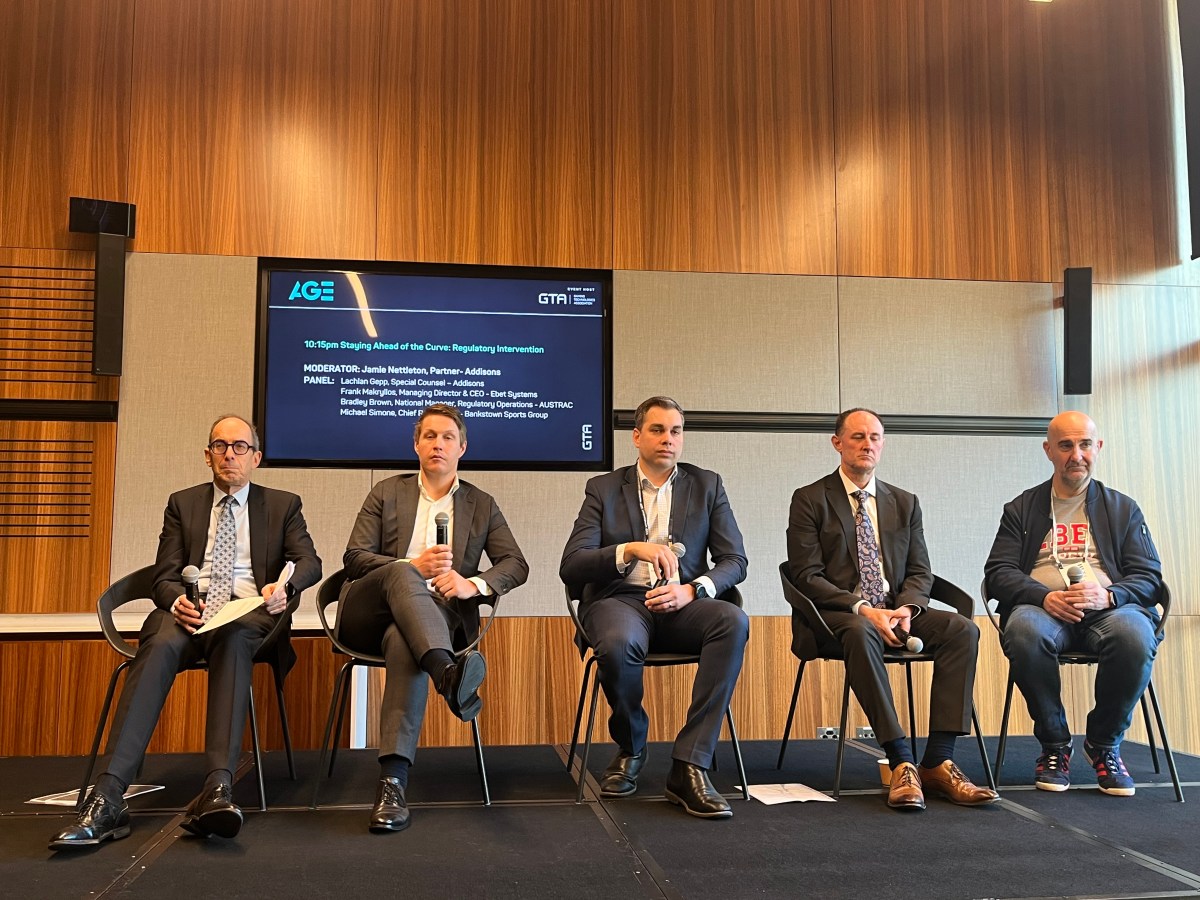AUSTRAC’s intensifying focus on how pubs and clubs manage anti-money laundering (AML) obligations has Bankstown Sports bracing for greater scrutiny, with chief risk officer Michael Simone saying the club is “anticipating every single regulator to come and take us on.”
Speaking on a panel at the Australasian Gaming Expo 2025, Simone said the board’s commitment has been critical in embedding a compliance-first culture and ensuring the club stays ahead of rising regulatory expectations.
“It was through that senior buy-in and board prioritisation of getting compliance at the forefront of every meeting … and that it was something that wasn’t going to go away,” he said.
“By bringing other compliance uplifts along the journey has also helped, so SafeWork, Fair Work, EPA … every regulator has come out swinging in the past couple of years and having that holistic approach has really helped us.”
Simone highlighted how the club has invested heavily in resourcing, including upgrading its CCTV into a “24/7 control room”.
“For us, given size and scope, it was something that we felt needed to be a little bit more reactive and live when things came in … it’s [about] just constantly tailoring and tweaking,” Simone said.
Bankstown Sports has also structured compliance oversight to ensure its financial and gaming operations remain independent.
“We brought the program in-house a couple of years ago and tried out best to make sure it was applicable to each venue we own in the group, as well as have the structure in place to have oversight that doesn’t report into the same financial framework as the gaming operational system, so that they can escalate and address things,” he said.
External support has also been another important step, Simone explained.
“It was pretty apparent fairly quickly that articulating risks for such a large venue was challenging,” he said.
“We leveraged industry experts to come out and validate that inherent risk level, validate whether their assessment of our controls was the same of our assessment, and go through optimisation to make sure it was in effect, and allowed that next level of residual risk to be the same.
“Those external parties really did help to bring it all together in a way that was easy to summarise and report up to the board so they can assess the risk appetite levels, as well as articulate in a manner that was easy to train down the floor.”
The club has also strengthened disciplinary powers to deal with suspicious matters and unsavoury behaviour.
“There’s a safeguard in place that we don’t sweep anything under the rug,” Simone said.
“The board’s overarching mentality is wanting to clean up the entire membership base. The kind of patron that will come in and engage in that behaviour isn’t the kind of patron we want.”
He noted this kind of approach, however, has not affected revenue.
“If anything, we’ve seen the opposite … more patron engagement, because this behaviour isn’t going on,” he said.
Joining Simone on the panel was eBet Systems managing director and CEO Frank Makryllos. He stressed that while many venues already have the right structures in place, they need to ensure those are adapted to their AML responsibilities.
“The systems you have right now and the processes you have were not designed around AML, but you’ve got the fundamental building blocks of it,” he said.
Makryllos urged clubs and pubs to ensure their compliance policies were specific to their venues and actively embedded into day-to-day operations.
“It can’t be something that just sits in the drawer. You’ve got to find a way to operationalise that, systemise it, and be able to prove to AUSTRAC that you’re actually implementing it,” he said.
“A lot of venues I’ve spoken to over a long period say, ‘yeah, we do all of this stuff’, [but] it’s also a matter of being able to prove that, substantiate it. It’s having a culture. It has to start at the top.”
The same message was echoed by AUSTRAC’s national manager of regulatory operations Bradley Brown, who underlined the regulator’s focus is squarely on protecting communities from financial crime.
“AUSTRAC’s primary objective is towards mitigating financial crime risk within our financial system and within our community,” he said.
“Clubs and pubs also have a significant interest in supporting the community, so there is a shared interest … We do not necessarily want our communities filled with crime, or the criminal proceeds from drug trafficking and illicit tobacco filtering through our businesses, which then has a potential impact on our reputations.”
Brown said AUSTRAC would release a “plethora” of new guidance material later this year to help businesses prepare for legislative changes coming into force on 31 March 2026.
“Much of it is exactly the same as it is now. It’s about the management of risks,” he said.
“But there are some legislative changes being made to help simplify and clarify the legislation, because it is complex. We’ll go about everything that we can possibly do to try and help business get the best understanding so they can apply that right to have the outcome that we are mutually seeking.”
The panel’s discussion comes off the back of AUSTRAC launching civil proceedings against Mounties for alleged serious and systemic non-compliance with Australia’s anti-money laundering and counter-terrorism financing laws.
Look out for the Spring issue of Club Management magazine for a deeper dive into how compliance and training can help clubs become more responsible.

